This article was co-authored by Amy Chow. Amy Chow is a Registered Dietitian and the Founder of Chow Down Nutrition, a family and child nutrition consulting service in British Columbia (BC), Canada. With over nine years of experience, Amy has a special interest in pediatric nutrition, food allergy management, and eating disorder recovery. Amy holds a Bachelor’s degree in Nutritional Sciences from McGill University. She gained her clinical experiences at residential and outpatient eating disorder treatment programs as well as for BC Children’s Hospital before starting her own business. She has been featured on Find BC Dietitians, Dietitians of Canada, Food Allergy Canada, Recovery Care Collective, Parentology, Save on Foods, National Eating Disorder Information Centre (NEDIC), and Joytv.
wikiHow marks an article as reader-approved once it receives enough positive feedback. This article has 16 testimonials from our readers, earning it our reader-approved status.
This article has been viewed 604,455 times.
We've all had the feeling before; you're most definitely hungry, but don't feel like actually eating anything. The causes for something like this are plenty; for some, it may be an illness. For others, it may be circumstantial issues or depression. In any case, if you've found yourself feeling like this, there are lots of things, both mental and physical, you can do to get your appetite to catch up with the rest of you.
Things You Should Know
- Let your body naturally build up hunger by waiting longer to eat or taking a nap to pass the time and refresh your energy.
- Stimulate hunger with some moderate exercise or by drinking lots of water.
- Push through the feeling mentally by opting for a light meal (maybe even in front of the TV!) and challenging yourself to savor each small bite.
Steps
Working Yourself Up Physically
-
1Wait a little while. Having no appetite while technically hungry is usually a temporary thing. Regardless of the reasons why you might be feeling this way, there should come a time where your appetite finally catches up with the rest of your body. If you don't need to eat right this instant, you're better off holding off on it until you're at such a point where you can enjoy your meal in earnest.
-
2Have a nap. It's quite possible that your body is in fact too tired to send proper signals of hunger to your brain. If you're feeling drowsy at all, it's a good idea to get a quick nap to help replenish your energy. Even a power nap as short as half an hour should do well to get your appetite going again.Advertisement
-
3Do some moderate exercise. Nothing whets the appetite like a walk or a decent jog. Going for some moderate exercise will help stimulate your body and remind you what you need the energy from food for.
- Granted, if you have no appetite, it may feel be that you're not feeling good in other areas. Exercise is recommended in a lot of cases, but if you're feeling sick, it may be best just to have a nap instead.
-
4Drink lots of water. Arguably the best possible thing you can do to stimulate your hunger is to drink water. This will fill your stomach for a short time and hopefully stimulate you for more to come.
-
5Opt for a light meal. If you've done what you can and still feel dubious towards eating something, the best possible advice is to start small and eat slow. Even if it's just serving a fraction of your meal to yourself at a time, the manageable portions will prove far less daunting than a full meal.[1]
- Make sure you're as relaxed as possible; if you're feeling tense and really don't want to eat, your gag reflex might work up as you're trying to eat.
Overcoming Psychological Hurdles
-
1Figure out the reasons why you might not want to eat. While having little to do with the act of eating per se, it will help your eating progress if you acknowledge and understand the specific reasons why you may be feeling this way. Feeling blue may be caused by a load of things. Likewise, there may be biological factors at work that play into depression or an eating disorder.[2] The mere act of contextualizing these feelings and actively working through them will make the act of eating seem all the easier.[3]
- It's just as important of a psychological step to remember the practical (and necessary) health benefits of eating food. If you see eating as an absolute necessity, you may feel more inclined towards eating.
-
2Try eating in front of the TV. Watching TV while eating is often seen as a bad thing and a cause for why people overeat. You may actually find a benefit to watching TV, as you will be able to eat food without it being taken off your attention.[4]
-
3Savour every morsel of food you taste. If you're having a hard time eating a lot, you can always start out really small. Instead of seeing it as a chore, try to see eating the food as a sensory experience. Find food you love to eat, and approach it purely with the intent of judging and appreciating the taste and sensation of it.
Community Q&A
-
QuestionIs it normal to not feel like eating for a month?
 Community AnswerAlthough it's not a normal state to not feel like eating for a month, changes in appetite can happen due to puberty, depression, or an eating disorder. If you're really concerned about it, talk to your doctor.
Community AnswerAlthough it's not a normal state to not feel like eating for a month, changes in appetite can happen due to puberty, depression, or an eating disorder. If you're really concerned about it, talk to your doctor. -
QuestionHow do I handle it when I am hungry after exercise?
 Community AnswerFirst, drink a large glass of water. Then, if you are still hungry, eat something small but filling, like a banana or a handful of nuts.
Community AnswerFirst, drink a large glass of water. Then, if you are still hungry, eat something small but filling, like a banana or a handful of nuts. -
QuestionWhat should I do if I sleep for around 13 hours every day and for the last 4 days I don't feel like eating until later in the day?
 Community AnswerDefinitely, DEFINITELY see a doctor. It won't hurt you to go to a free clinic near you. Sounds a bit like when I was going through depression, but this could also be a serious physical illness. In any case, contact a medical professional.
Community AnswerDefinitely, DEFINITELY see a doctor. It won't hurt you to go to a free clinic near you. Sounds a bit like when I was going through depression, but this could also be a serious physical illness. In any case, contact a medical professional.
Warnings
- Not eating while hungry is a sign of depression. If you think this might be the case for you, it's recommended you talk to a trusted friend or a medical professional to give you the help you deserve.[5]⧼thumbs_response⧽
References
- ↑ https://www.urmc.rochester.edu/encyclopedia/content.aspx?contenttypeid=34&contentid=18346-1
- ↑ Amy Chow. Registered Dietitian. Expert Interview. 16 September 2020.
- ↑ https://www.medicalnewstoday.com/articles/324011.php
- ↑ http://www.health.harvard.edu/blog/distracted-eating-may-add-to-weight-gain-201303296037
- ↑ http://www.webmd.com/depression/features/depression-food-traps
About This Article
If you’re hungry, but don’t feel like eating, try taking a quick nap, since if you’re too tired your body can’t properly send hunger signals to your brain. You can also do some light exercise, like taking a walk or a short jog, to work up an appetite. Alternatively, drink a large glass of water, which can stimulate your hunger. If you still don’t feel like eating, but know that you’re hungry, opt for a small, light meal and eat it slowly. To learn how to overcome mental blocks that make you lose your appetite, read on!
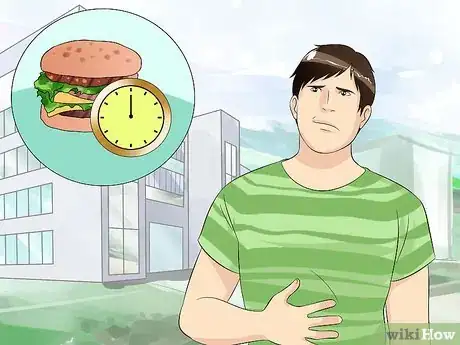
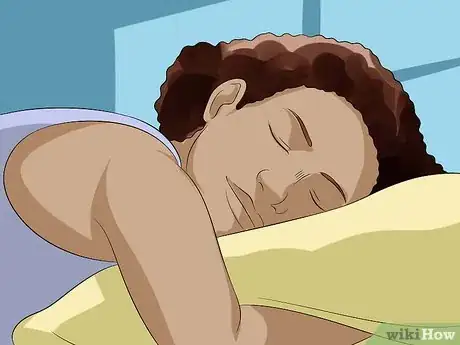

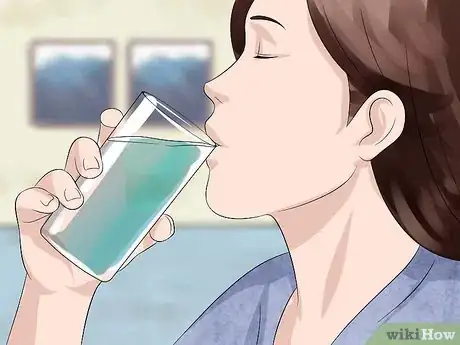
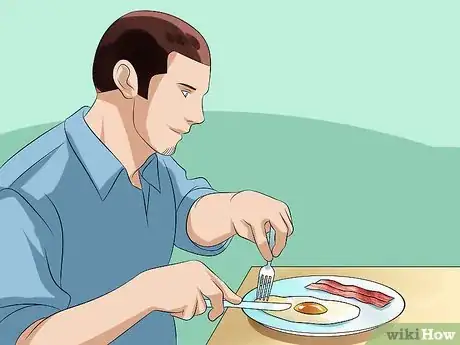
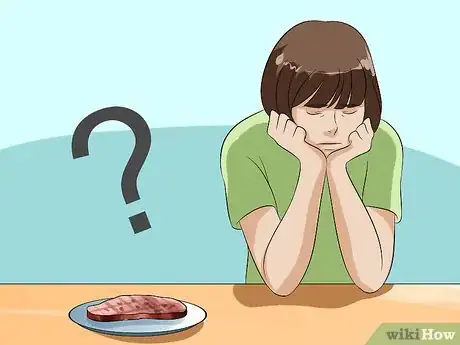

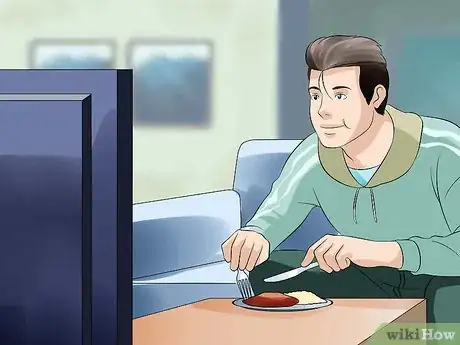
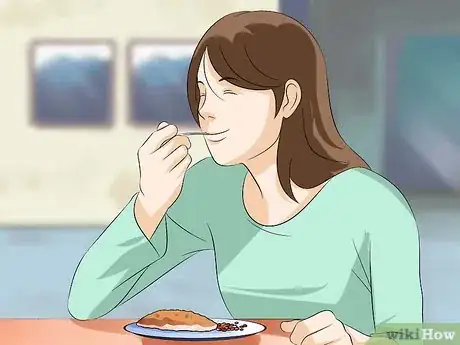
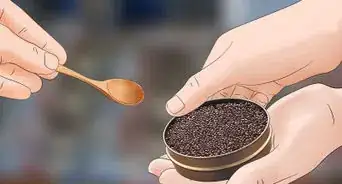



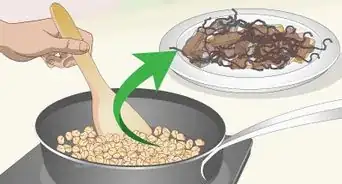



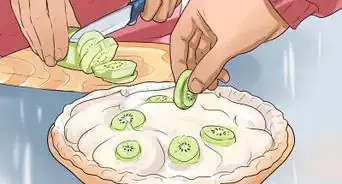

















































Medical Disclaimer
The content of this article is not intended to be a substitute for professional medical advice, examination, diagnosis, or treatment. You should always contact your doctor or other qualified healthcare professional before starting, changing, or stopping any kind of health treatment.
Read More...